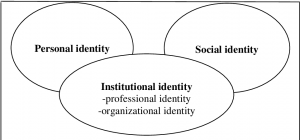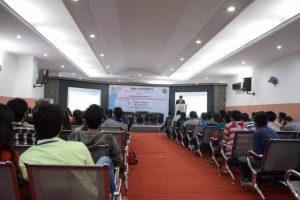The COVID-19 pandemic saw the world embracing online learning as commonplace. However, with the new and innovative strategies and design of online learning courses, many students across the world have experienced challenges navigating this new space that can be exciting for some and daunting for others. To ensure a positive and seemingly smooth experience for all, it’s important to create a space for opportunities and growth in online learning. In this blog post, I will reflect on the roles of both facilitators and participants ias well as the opportunities and challenges both may experience in online teaching and learning.
Both facilitators and participants are not always comfortable with their online presences and while accepting it can be a slow process, we need to think about how can we maintain and improve our online presences by assessing and eventually overcoming challenges. One of the core challenges my PBL group noted was the challenge of balancing one’s personal and institutional presence.
We noted three main areas that may affect one’s personal and institutional presence:
- Personality/Environment: The demands of online learning may require both facilitators and participants to move out of their ‘comfort zones’. There is also the possibility of major group diversities in terms of culture and level of support required.
- Risks: One of the major points to consider is ensuring equal access for all. We also need to be able to monitor the use of produced material/copyright as well as cyber security and data protection protocols and legislation.
- Digital Literacy: In order to be a successful digital resident, you need to master the skills required for effective digital literacy. We need to consider levels of self-motivation and support needed for all those concerned.
So how can we bridge these gaps and find possible solutions to these issues? The following points are based on academic research and include some solutions to these issues in order to create a safe and positive online teaching and learning environment for both facilitators and participants:
Personality/Environment:
One of the major solutions to balancing both institutional and personal identities is to not complete separate the two, but rather merge the two and they should co-exist. The type of online platform is an important factor to consider. While social media platforms are generally a space for our personal identities, other social media networking sites such as LinkedIn enable participants and facilitators to structure a professional identity. Katy (2019) elucidates in her findings that ‘the blurring of public and private (boyd, 2008) was found to be strongly influential on how academics conceptualise their use of different sites, the networks they foster, and how their personal and professional identities are expressed via different sites.’ It is therefore important to note that what constitutes an authentic identity varies according to different platforms, and digital literacies are required in order to prevent identity being prescribed entirely by the platform. Institutions should therefore assist both facilitators and participants in facing the challenge of forming and keeping a credible digital identity via workshops (Taylor, 2022).

Figure 1: The Identity Construct
Risks: Equal Access & Cyber Security/Data Protection
Besides the co-existing of institutional and personal identities, there are some risks for online teaching and learning that needs to be considered. Academic institutions across the world have to consider equal access, cyber security and data protection laws and policies that are relevant in their geographical region. There should be a clear plan of action constructed by institutions, training and workshops should be held that inform both facilitators and participants about copyright, data protection and cyber security concerns. To prevent cheating and plagiarism and maintaining a high level of academic integrity, academic institutions should make available and be aware of necessary tools for checking plagiarism.

Figure 2: An example of a Data Protection Workshop
Digital Literacy
Digital and academic literacy is of paramount importance for both facilitators and participants engaged in online teaching and learning. One of the major challenges is the lack of digital literacy skills for facilitators and participants. To improve levels of digital communication, multiple online video conference platforms should be available, for example MS Teams, Zoom and Skype. To improve levels of digital learning, there should be a variety of tools available such as blogs, discussion forums and journals. As well as online or recorded seminars. Lastly, to improve levels of digital assessment, assessments should be anonymised for the entire learning group so that potential improve areas can be identified.

Figure 2: Digital Competence
In conclusion, creating a positive and supportive environment for online teaching and learning is a collaborative effort between facilitators and participants. By fostering digital literacy skills, understanding how to separate and/or merge personal and institutional identities and being cognisant of ethical and data risks, we can ensure that everyone feels comfortable engaging in the learning process, sharing their knowledge, and benefiting from the diverse perspectives that digital literacy offers.
References:
Jordan, K. Separating and Merging Professional and Personal Selves Online: The Structure and Processes That Shape Academics’ Ego-Networks on Academic Social Networking Sites and Twitter. Journal of the Association for Information Science and Technology, 70: 830-842. https://doi.org/10.1002/asi.24170
Punie, Y., editor(s), Redecker, C., European Framework for the Digital Competence of Educators: DigCompEdu , EUR 28775 EN, Publications Office of the European Union, Luxembourg, 2017, ISBN 978-92-79-73718-3 (print),978-92-79-73494-6 (pdf), doi:10.2760/178382 (print),10.2760/159770 (online), JRC107466.
Leave a Reply